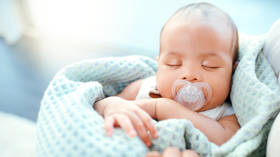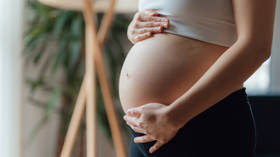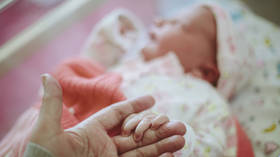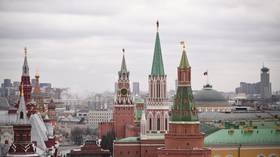Why are pandemic babies developmentally stunted?

Babies born during the first year of the pandemic are developmentally and cognitively behind where they should be... and it isn’t because of the virus itself. That is the shocking finding from a major new study in the journal JAMA Pediatrics on 255 babies born at a New York hospital between March and December of 2020.
In screening tests of gross motor, fine motor, and social skills done at the age of six months, pandemic babies scored lower than pre-pandemic babies. Whether the mother had Covid during the pregnancy, however, made no difference to the babies’ development – regardless of how severe the infection was. So, if the damage wasn’t down to the virus, what did cause it?
I spoke to Dr. Dani Dumitriu, co-author of the study and paediatrician at Columbia University, to find out more. She points out that although pandemic babies’ scores were only slightly lower, these average differences could have profound long-term effects on an entire generation.
While the scientists had expected that only babies whose mothers caught Covid would be affected, this result, says Dr. Dumitriu, “points to potential impact on the neurodevelopment of infants born during the pandemic irrespective of maternal infection, which – if replicated – would translate to potential impact on hundreds of millions of children born since the onset of the pandemic, with potential for significant public health consequences.”
These consequences will not necessarily be noticeable in most cases – rather, they will show up at the extremes. “This is because small shifts in average scores of hundreds of millions could translate into doubling or tripling [sic] or quadrupling or more of the ‘failure rates.’” In other words, among the infants toward the lower end of the development spectrum, more would now be pushed underneath the threshold of failing the screening tests for babies their age. Their generation will have a higher proportion who are subnormal, incapable of functioning in society.
Pandemic babies are already behind after just the first few months of life. And seeing as the impact on babies appears to have been environmental, wouldn’t we expect older children and teens, who weren’t insulated from pandemic life by a uterus, to have fallen even further behind in their development?
Unfortunately, the answer is yes. Dr. Dumitriu explains: “We do expect the concept of pandemic-induced effect on child development to generalize to other developmental stages and indeed there is some indication in the literature that this is happening already.”
This is hardly a surprise. After all, it’s young people who have been scapegoated during this crisis. They have been forced to swaddle their faces in swampy cloth for half the day, and implored to take vaccines so as not to kill their grannies. Some teenagers and young adults are still working and studying from home, subjected to interminable Zoom meetings in a kind of slow-motion psychological torture. All this for a virus we know poses extremely little risk to them.
All is not lost, however. Dr. Dumitriu points out that it is not too late to reverse the damage done to these malleable young minds. “Because this is such an early timepoint, there are lots of opportunities to intervene and get these babies onto the right developmental trajectory… by talking, singing, playing, and interacting with them and finding safe ways to take them out of the home more often, parents can absolutely help mitigate potential issues down the road.”
The trouble is, public health czars haven’t been too hot on taking children out of the home lately. It is hard to have much faith in public health’s ability to bring these babies back up to speed. No doubt, the studies on the pandemic’s legacy on children will continue, their findings drip-fed to us as the years crawl by. The only thing surprising that could come from them will be the extent and scope of the damage, the length of the scars left.
Some have taken to tagging all this as ‘the cost of Covid’. But Covid is the respiratory disease, which never threatened most young folk. For them, this is the cost of Covid restrictions, the cost of Covid politics. This is the cost of fear.
The statements, views and opinions expressed in this column are solely those of the author and do not necessarily represent those of RT.















